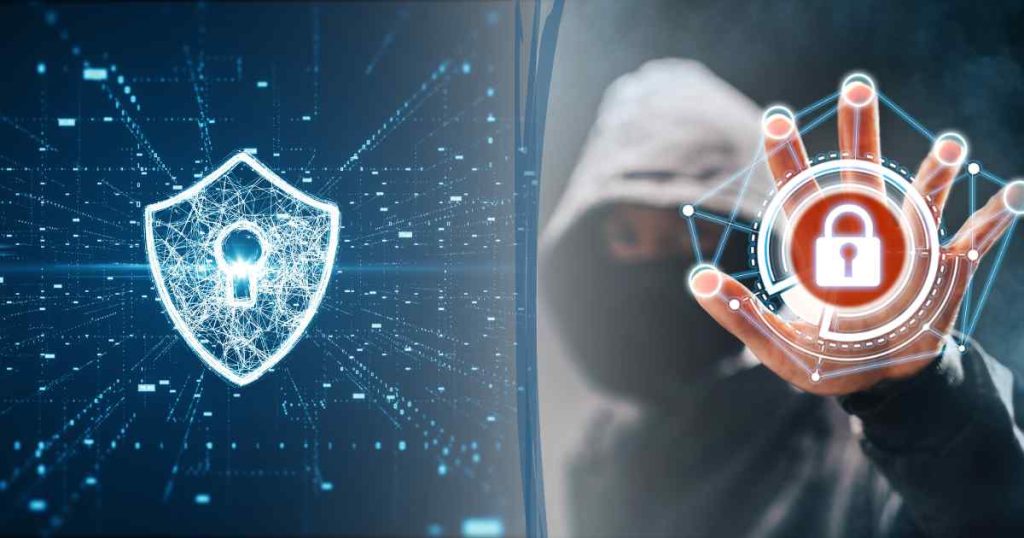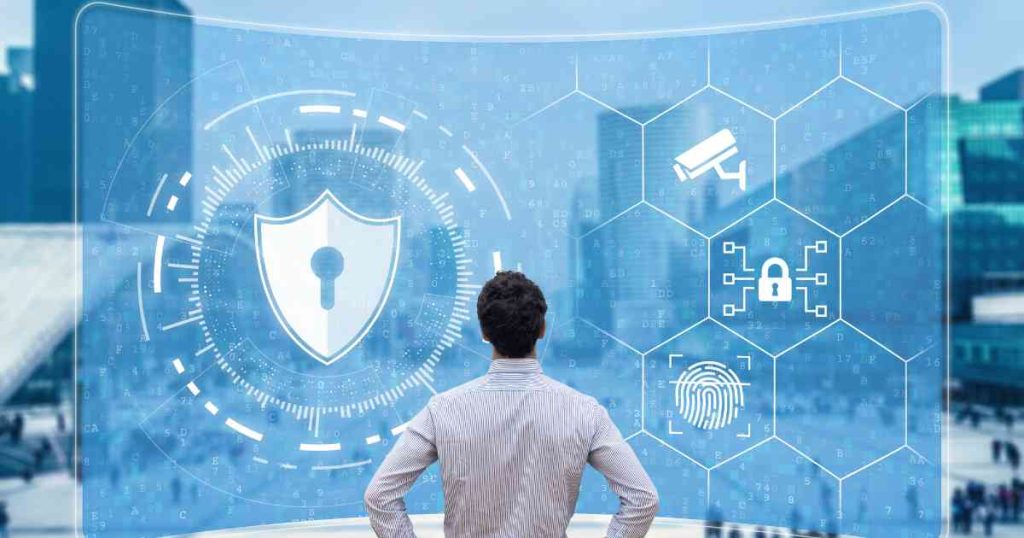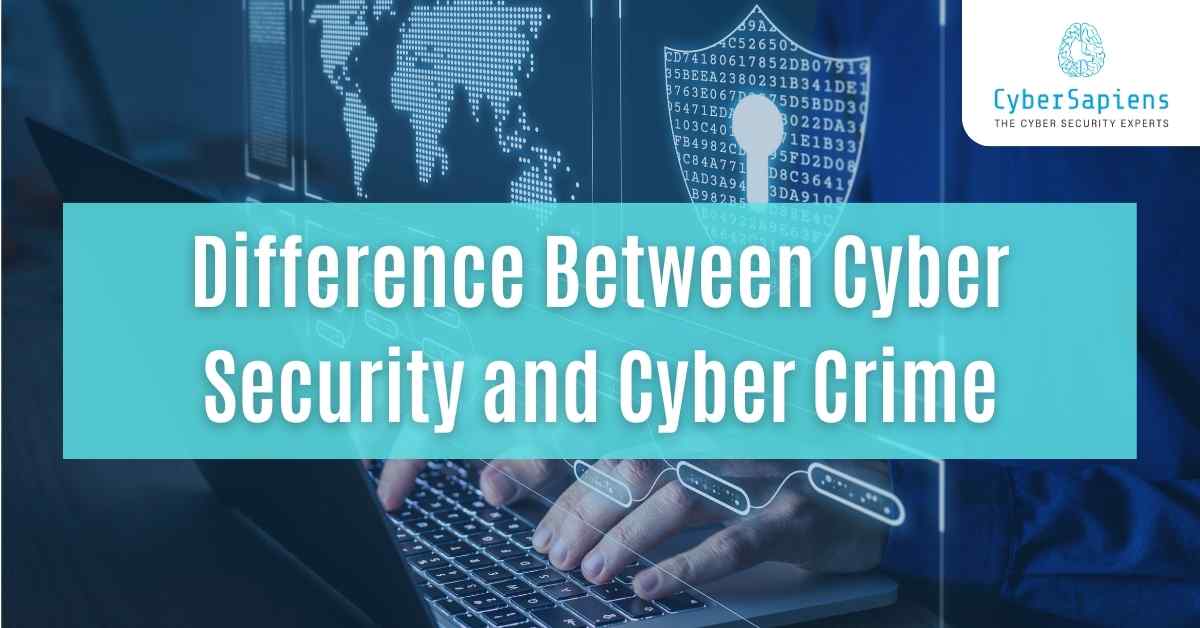Have you ever pondered the difference between cyber security and cyber crime? The internet world is in an ever-growing state, and the public needs to know when exactly certain cyber issues arise.
Hackers are busy creating massive chaos in this internet-centric world. That is why there is a high need for information security across businesses looking forward to safeguarding their data right away.
So, what is the main difference between cyber security and cyber crime? This blog will cover the various aspects of this topic and quell all your queries regarding it.
Table of Contents
What Exactly is Cyber Security and Cyber Crime?
Before digging deeper into the difference between cyber security and cyber crime, let’s check out their meaning to understand better.
Cyber security revolves around the practice of safeguarding computer systems, networks, and digital data against theft, damage, or unauthorized access.
The main goal behind cyber security or information security is to secure computers, servers, networks, and data from multiple cyber threats and attacks. Some of its measures include the use of firewalls, antivirus software, encryption, multi-factor authentication, and daily security audits.
Furthermore, cybercrime deals with criminal activities across the internet and computers. It focuses on eliminating vulnerabilities in digital systems, compromised data, organizations, and nations.
Most of the common cyber criminal activities include hacking, malware distribution, phishing, identity theft, ransomware attacks, financial fraud, and online harassment.
Difference Between Cyber Security and Cyber Crime: Points to Explore

Cyber security and cyber crime are different concepts in navigating the digital landscape. Understanding the points of differences between them is crucial for organizations and societies at large.
So, let’s get started below:
1. Area of Concentration
Cyber security secures computer networks from unauthorized access and cyber threats. Furthermore, it utilizes firewalls, intrusion detection systems and safeguards communication protocols.
Cyber crimes are actions made to compromise the confidentiality, integrity, or availability of digital systems. Here, internet security measures play a vital role in mitigating the impact of cyber attacks.
2. Proactive Defense and Malicious Intent
Cyber security takes a proactive approach to preventing potential cyber threats before they even occur. It implements security policies, conducts risk assessments, and employs preventive technologies.
Cyber crime centers around malicious intent and criminal activities that seek to exploit vulnerabilities. With the use of digital tools and techniques, it protects against data stealing and disrupts operations.
3. Legal Consequences and Framework
Cyber security strictly adheres to legal and regulatory frameworks to ensure the lawful implementation of security measures. Besides, it aims to prevent legal ramifications via measures that align with prevailing laws and regulations.
Cyber crime is subject to legal consequences. Laws and regulations are always in place to prosecute cyber criminals and deter malicious activities. Along with this, the dynamic nature of cyber crime deals with constant updates to legal frameworks to address emerging threats effectively.
4. Collaborative Efforts and Individual Exploitation
Cyber security involves collaborative efforts within businesses, industries, and governments to share threat intelligence. Furthermore, professional cyber security providers collaborate with their teams effectively to enhance overall digital defense capabilities.
Whereas, cyber crime directly operates on an individual or small-group basis, trying to seek personal gain. Moreover, criminal enterprises and hackers engage in cyber criminal activities for several reasons. The lack of one centralized structure makes it challenging to effectively predict and counteract diverse cyber criminal operations.
5. Ethical Considerations
One of the main points of difference between cyber security and cyber crime is the initial one aims to protect digital assets without compromising privacy or violating ethical norms. Besides, it adheres to principles of responsible disclosure when identifying and addressing vulnerabilities.
In the case of cyber crime, it lacks ethical considerations, with cyber criminals operating with the main goal of causing harm. It involves the process of exploiting individuals or organizations for financial motives concerning ethical boundaries.
6. The Response and Recovery
Cyber security emphasizes incident response and recovery planning to minimize the impact of cyber incidents heavily. It involves measures like data backups, incident detection, and response protocols.
Cyber crime necessitates law enforcement and legal measures for prosecuting cyber criminals. Victims of cyber crime may engage in recovery efforts that include restoring compromised systems and mitigating financial losses.
Things to Consider When Looking for a Cyber Security Expert

After gaining knowledge about the difference between cyber security and cyber crime, it’s time to know how to choose the right expert for your business data safety.
1. Expertise Matters
Go for cyber experts who have a solid, proven track record of their expertise. Try considering their expertise in specific areas like network security, penetration testing, incident response, or compliance.
2. Verified Certification
Checking for industry-recognized certifications like Certified Information Systems Security Professional (CISSP), Certified Ethical Hacker (CEH), or Offensive Security Certified Professional (OSCP) is a complete must.
3. Mandatory Relevant Skills
It is important to use the expert’s technical skills, including proficiency in using cybersecurity tools and programming languages and understanding multiple operating systems. The provider must stay adaptable and updated on the latest cybersecurity trends and technologies.
4. Communicative Skills
Effective communication is the main key to choosing the right cyber security professional. They must be able to convey complex security concepts to non-technical ones.
Conclusion of Difference Between Cyber Security and Cyber Crime
Last, but not least, it is understood that cyber security and cyber crime are co-related to each other but come with a different meaning. Moreover, businesses and individuals who are stressed upon safeguarding their data must rely on a cyber security expert to take proper measures against cyber crime prevention.
With the difference between cyber security and cyber crime, it is clear that there is no end to the possibilities of cyber crimes in the long run. Hence, we must not think twice while depending on the right service provider.
FAQ
What is the difference between Cyber Forensics and Cyber Security?
Cyber forensics and cyber security are completely related terms that focus on various aspects of digital security. Cyber security is a broader term that encompasses the protection of computer systems, networks and data from unauthorized access.
Which is Better Cyber Security or Cyber Crime?
Cyber crime is a constantly growing issue and cyber criminals are looking for ways to exploit the vulnerabilities in technology systems. Measures against these prevent the spread of malware and phishing scams.
Are you looking for Cybersecurity Services for your business?
Choose from an umbrella of cybersecurity services for your business and be safe from ever-looming cyber threats like ransomware, phishing, malware attacks, DDOS attacks etc.












